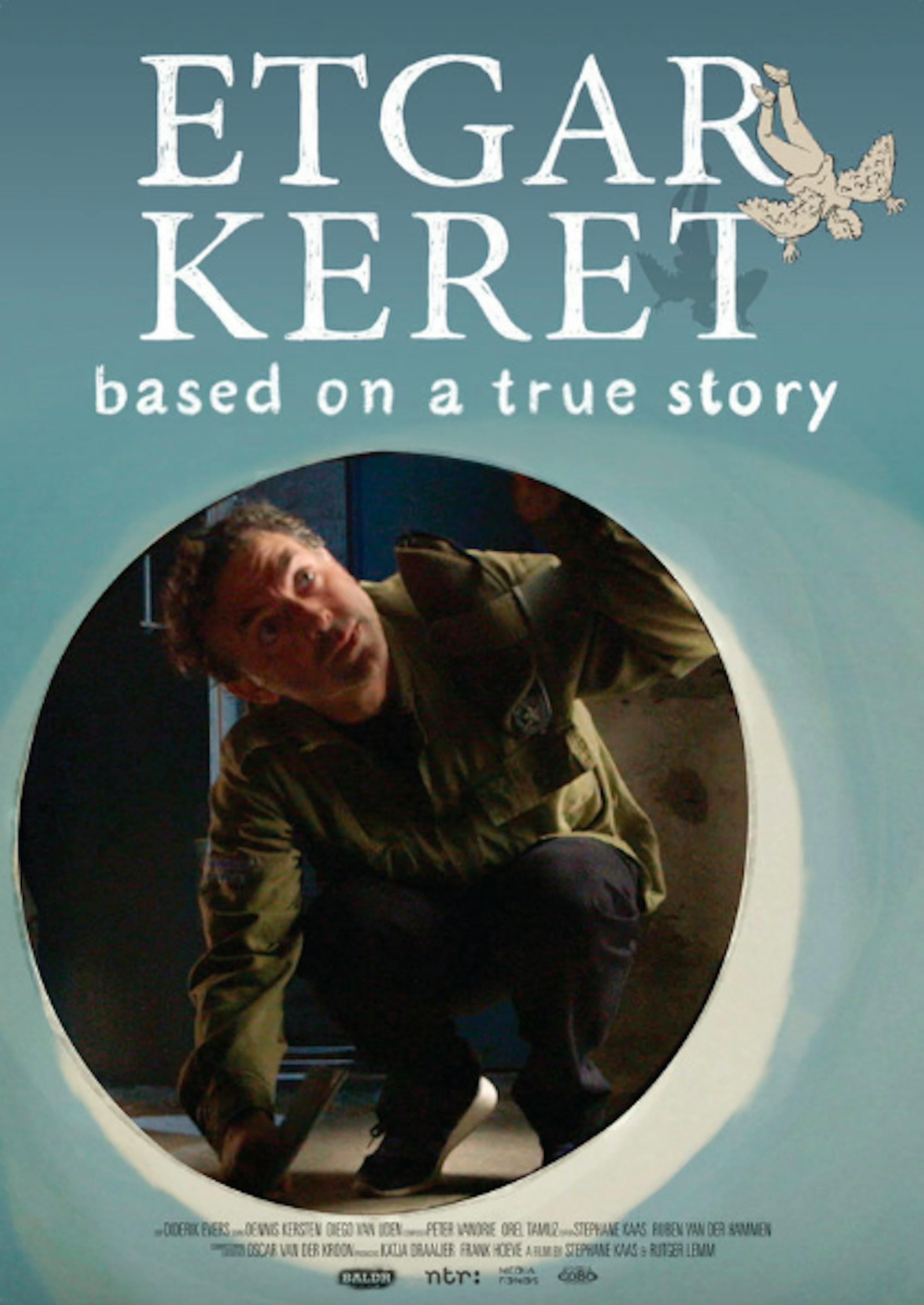The first thing you should know about the critically-adorned, bestselling writer Etgar Keret is that he is a liar. Keret’s friends and family, including the great American novelist Jonathan Franzen, admit this without hesitance. His lies are, however, merely exaggerations for the sake of storytelling -- a touch of fantasy to what is mundane. In other words, his compulsive lying is what makes Keret arguably one of the most talented magical realists of contemporary fiction. “Etgar Keret: Based on a True Story” (2017) tackles this issue at its core and investigates what makes great storytelling, by mixing fiction with documentary making.
The film opens with a scripted scene, where the director-screenwriter duo Stephane Kaas and Rutger Lemm are held up at the infamous Israeli border customs. They are subjected to interrogative questions by the security staff regarding their purpose of travel. As two Dutch men, Kaas and Lemm explain that they are shooting a documentary about Keret. They address their decision to have Keret as their subject and talk about the first time they have been exposed to his fiction. To full comedic effect, the exchange between the security officer and the Dutch men leads into a discussion about Keret’s fiction. The conversation assures that Keret’s fiction and humor, as fantastical they come, are also universal.
The discussion is followed by the men discussing their favorite Keret story; Kaas chooses “Fatso” from the short story collection "The Nimrod Flipout” (2006). While Kaas retells the story, a striking stop motion animation serves as a visual companion. “Fatso” is about a man who is in a relationship with a woman who shape-shifts into a hairy, fat man named Fatso at night. Even though the man is surprised at his girlfriend’s condition at first, he soon befriends Fatso. In the end, he spends time with his loving girlfriend in the morning, and his loyal friend, Fatso, at night.
The audience soon learns the inspiration behind “Fatso.” Keret explains that he wrote his story when he first met his wife, film director and actress Shira Geffen. Splitting his time with Shira and his best friend Uzi, Keret felt the two closest figures in his life had many similarities. He also felt that he had spent less time with Uzi, which led Keret to dedicate the story to him. As proven in this case, Keret’s stories have autobiographical truths in them, but the truths are exaggerated and distorted to highlight the absurd and the silly.
The rest of the documentary focuses on Keret’s life and the colorful characters around him. His closest friends include Uzi, who is so protective of Keret that he threatens a fact checker from The New York Times when they question Keret’s statements; Kobi, a strongman who cannot be strangled; writer Jonathan Franzen and the famous National Public Radio host Ira Glass. As different as they are, all of Keret’s friends show admiration of his storytelling skills and laud him for viewing life from a unique perspective. Keret has his own trauma, mostly from his days in the military, which leads him to seek escapism through fiction.
Keret’s charm and humor is captivating and, interacting with him for the duration of the documentary, the audience gets a glimpse of his naiveté and his passion for life. Near the end of the film, Keret describes his fiction as “advertisements for life.” In many ways, this statement proves to be true. Keret’s stories ultimately confront the sadness in life and offer comfort through humor. They encourage readers to view reality from a different perspective, whether that perspective is strange, absurd or amplified.
'Etgar Keret: Based on a True Story' exhibits the beauty of absurdity in storytelling

A promotional poster for 'Etgar Keret: Based on a True Story' (2017) is pictured.
Summary
Blending fiction with documentary, "Etgar Keret: Based on a True Story" (2017) makes for a satisfying look at the famed Israeli writer's relationship with truths and storytelling.
4.5 Stars





